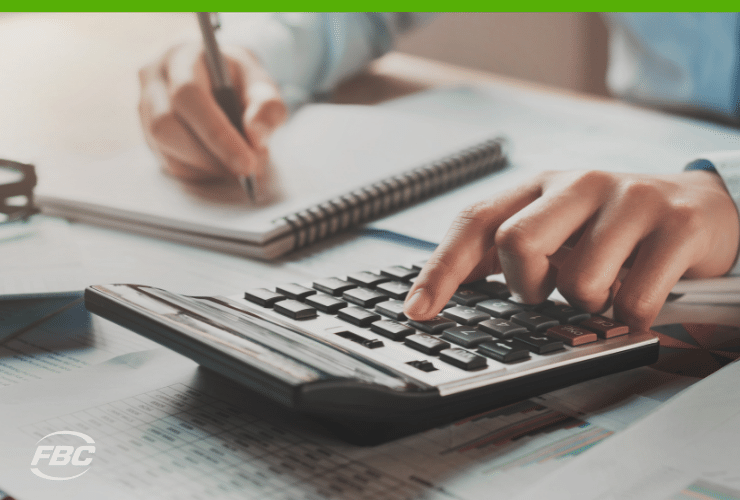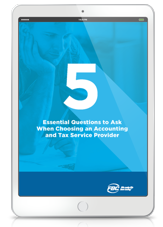Last updated: Nov. 19, 2021
When small business owners find themselves facing unexpected shortfalls or can’t pay bills during slow months, it’s a sign that they’re not monitoring their cash flow.
For a business, running out of cash is like getting stuck in quicksand: you sink deeper and deeper into the red as you borrow from one area to pay another. As you do your best to stay afloat, your business obligations – from payroll to loan payments – become increasingly hard to meet.
The good news is that you never have to let it get that far.
According to Kevin Cochran, co-founder of the wealth building and financial literary training series Enriched Academy, prevention is the best medicine when it comes the financial health of your business.
By avoiding the following 5 cash-flow mistakes, you can ensure you never have to rob Peter to pay Paul.
1. Neglecting to monitor your cash flow at least weekly
If you’re not monitoring your cash flow on a daily, or at least weekly basis, you’re missing out on prime opportunities to spot problems before they bleed you dry.
“You need to know every dollar going in and every dollar going out,” says Cochran. “You’d be surprised how many people don’t do that.”
There are no “do-overs” in business which is why staying on top of your numbers is critical. This will give you the real picture of what’s going on in terms of the money going in and out of your business.
“Small business owners are often surprised by what they find when they start looking into their cash flow,” says Cochran. “If you really break it down, you’ll realize a large portion of your business and sources of cash are usually coming from a very small portion of your clients.”
Once you can identify what product is performing best for what type of customer, you’ll unlock the secret to making your business more profitable. From there, you can use this kind of business intelligence to streamline your portfolio of offerings, or to adjust your pricing to attract more of those profit-generating customers.
Consistently reviewing your cash flow will also help you catch overdue payments from clients. Few business owners enjoy chasing down unpaid invoices, but your accounts receivable is the life blood of your business. Without that cash, how can you pay your own bills or meet your other financial obligations?
The other benefits of more closely monitoring your payroll are to see if any of your own bills are overdue and to help determine if a slow month is cause for concern or just a cyclical part of your business.
2. Spending too much, too soon
When starting out in business, it’s all too easy to spend too much money upfront. Cochran urges small business owners to keep overhead and operating expenses as low as possible – especially in the beginning.
“Many business owners make long-term commitments to things they don’t need yet, such as long-term leases on huge properties or a lease on a new car that is way beyond what their budget can afford,” says Cochran. “They often believe they’ll grow into it or be more profitable than they are.”
Before you commit to any major purchases or leases, look at every area of the business that costs money, from coffee to staff to office space. Make sure to separate out “needs” from “wants” as you investigate.
If you’re overspending in one area, Cochran says there’s a good chance you’re overspending in other areas too.
Already committed to loans or leases? Start looking at other options like renegotiating with your lenders. To cut additional expenses, investigate low-hanging fruit, like switching to a bank with a lower monthly fee. Anything that can free up cash will help your business stay cash positive.
3. Not maintaining cash reserves
Every business hits some bumps in the road, which is why it’s a good idea to maintain several months of cash reserves.
“At some point in your business, you’re going to run into a financial hiccup,” says Cochran. “And it usually starts about six to eight months after you open your business.
“You think, ‘Oh, I’ll have six months in the bank to pay my bills and by then at least something will be happening.’ And then you realize, like most small business owners, not much is happening in terms of making a profit.”
According to Cochran, this is the point where business owners come face-to-face with the financial reality and risk of running their own business.
When facing an unexpected shortfall, many business owners instinctively tap into their personal savings or assets to cover business expenses. It’s best to resist this temptation as doing so can create a viscous cycle that can leave you worse off financially than you were before.
A cash reserve remains the best way to protect your business and your personal finances. While it’s up to you how much of a cash reserve to build up, it needs to be large enough to cover your expenses during slower months. Make sure to balance a cash reserve with investing, since you don’t want to be sitting on a large amount of money without a return.
4. Missing out on investing to grow your wealth
Once your business is profitable and you’ve got a good handle on the finances, Cochran recommends investing into different assets to generate passive income.
“Pick one or two ways to invest, whether it’s investing in other businesses, real estate, the stock market, or private mortgages,” says Cochran.
Here are some basic tips for investing:
- Start investing as soon as possible – You don’t need a large amount of capital to start investing. For example, if you decided to invest in mutual funds, even if you start with a very small amount of money, you will see benefits from compound returns (re-investment of earnings over time).
- Diversify – You could invest in other businesses, real estate, the stock market or private mortgages. By investing in a variety of industries and sectors, you’re reducing your overall financial risk. If some investments are performing poorly, you could still see a return from investments in other industries and sectors.
- Take advantage of Registered Savings Accounts – Investment income is tax-free in a registered retirement savings plan (RRSP) until you withdraw the money. Contributions to the RRSP are tax deductible so you receive immediate tax relief and tax-sheltered growth. The tax-free savings account (TFSA) lets you contribute $6,000 a year and you don’t pay tax on investment income or withdrawals.
5. Not hiring an accounting and tax specialist
Cochran says as soon as you get to a point where your business is profitable, you should hire someone to handle your books and finances.
“Make sure you find the right person that can help manage your money properly,” says Cochran. “There’s no point in making all this money, only to have it poorly managed in the back end.”
A skilled bookkeeper will track your accounts and keep your books and financial records in order. Most importantly, they will help create an accurate picture of your cash flow.
An experienced accounting and tax specialist will use this information to help you compare past and present financial positions, plan and forecast future financial positions, and provide information to make sound business decisions.
When it comes to taxes, they will help you optimize your return so pay less tax and file on time, so you avoid penalties and interest. Accurately reporting your obligations to the Canada Revenue Agency will also save you time and energy if your small business ever gets audited.
Free Resource: Bookkeeping Secrets for Successful Business
Five essential questions to ask your accounting or tax provider
Most business owners don’t have the time or the technical knowledge to handle all their own administrative tasks. They’re also afraid of making a mistake, only to have the CRA to come calling.
Sound familiar?
You have enough on your plate just keeping up with the day-to-day of your business. That’s why you either hired an accounting or tax provider, or are thinking of hiring one.
Download your copy of “5 Essential Questions to Ask When Choosing an Accounting and Tax Service Provider” to know how to find the right person to help you succeed.
Download now:
About FBC
FBC was founded on the belief that Canadians should receive every benefit of filing their taxes. Three-generations later, our family-owned business continues to support farmers, truckers, trades and other small businesses minimize their taxes, simplify their books, and pay their employees.
Take 15-minutes to connect with us. Let’s see if we’re a good fit for you and your business. Request your free consultation online or call us at 1-800-265-1002.

